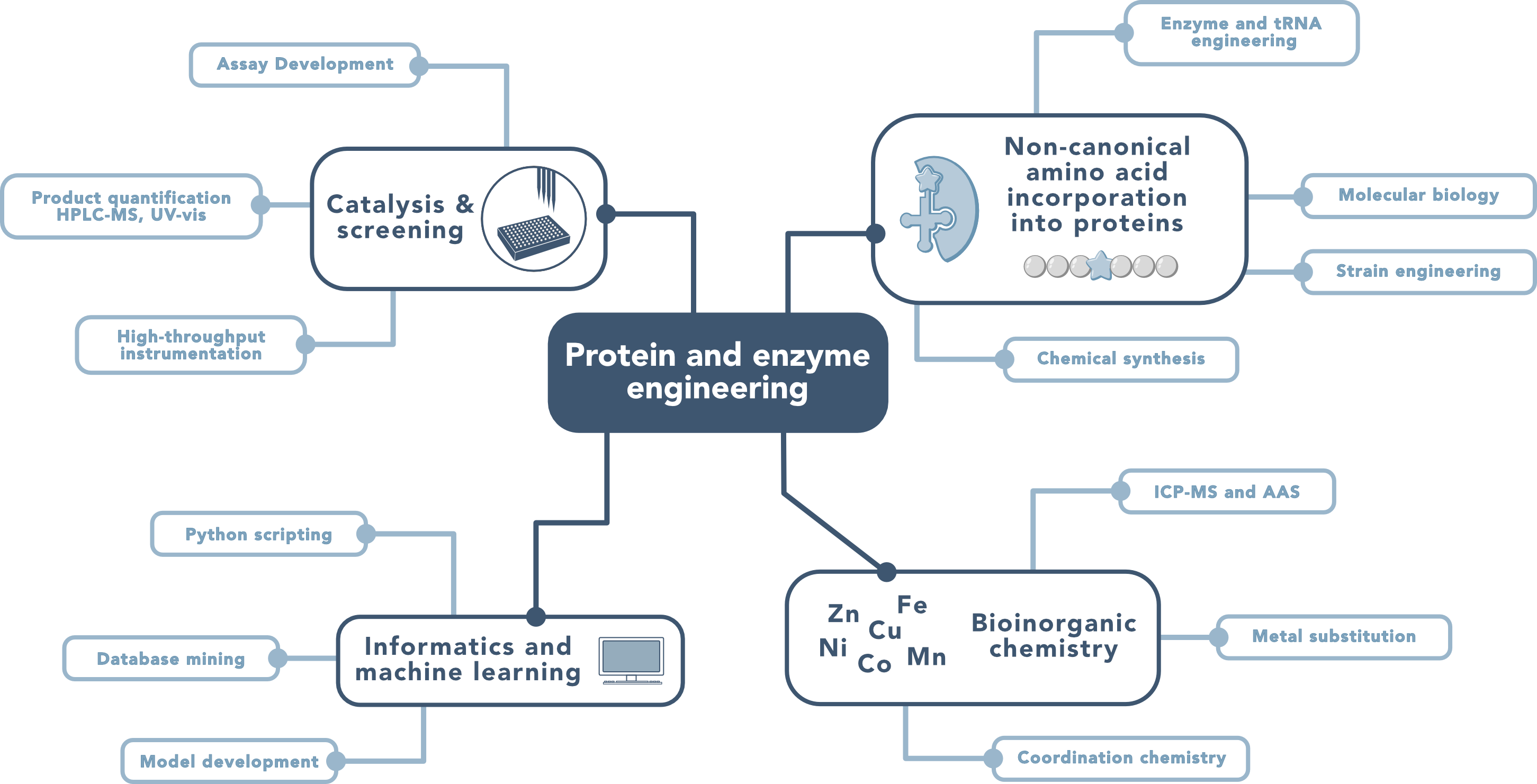Metalloenzyme Engineering

Proteins are molecular machines of life, and enzymes—proteins that catalyze chemical reactions—drive the critical processes that sustain cells. What makes enzymes remarkable is their ability to orchestrate complex chemical transformations under mild, physiological conditions, unlike many reactions in synthetic chemistry that require harsh temperatures, pressures, or solvents.
While evolution has optimized enzymes to perform reactions beneficial to their host organisms, these natural functions don't always align with human needs. Through protein engineering—achieved through the modification of amino acid sequences—scientists can reprogram enzymes to catalyze desired target reactions for applications ranging from medicine to sustainable manufacturing.
Our laboratory is focused on fundamental research at the intersection of mechanistic enzymology, catalysis, bioinorganic chemistry, protein engineering, and method development. By studying and engineering proteins and enzymes, we aim to decode the molecular principles that govern their activity, repurpose existing enzymes for new or improved function, and design novel biocatalysts with tailored functions.
We take a highly interdisciplinary approach, integrating methodologies from chemistry (mechanistic studies, chemical synthesis), biology (directed evolution, structural biology), and computational sciences (bioinformatics, machine learning, molecular modeling). A particular focus in our lab is the incorporation of non-canonical amino acids—synthetic building blocks beyond nature's canonical 20 amino acids—through genetic code expansion, which opens new modalities for expanding enzyme chemistry, studying enzyme function, and creating catalysts with exciting capabilities.